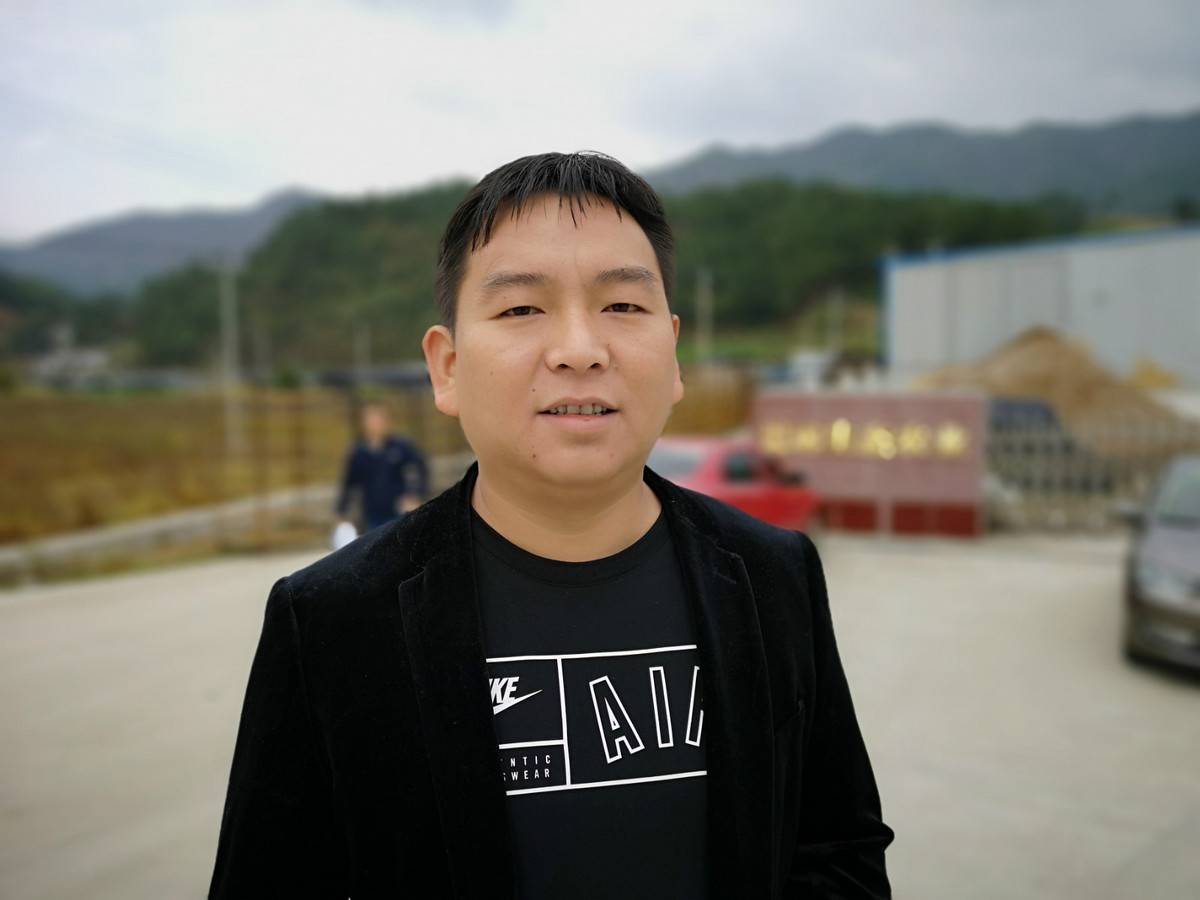My home area has great development potential
By Hou Liqiang | China Daily | Updated: 2019-11-11 09:08

I was the first student from Guanhe, a village in the mountains of Yuexi county, Anhui province, to earn a bachelor's degree.
My parents and many villagers were very proud of me. They hoped that I would leave the village and not follow in their footsteps as farmers, but I made a decision that surprised them.
In 2013, I returned to Guanhe to plant jelly ear (a type of edible fungus).
In 2008, I graduated from Anhui University of Finance and Economics in Bengbu, Anhui, with a degree in statistics.
I started work at a State-owned lacquerware company in Nanjing, capital of Jiangsu province, but even though I made more than 5,000 yuan a month, I felt under growing pressure as a result of high property prices.
I knew nothing about jelly ear at the time. The idea of planting it occurred to me when a friend told me that edible fungi had huge market potential. His comment reminded me of the jelly ear I had frequently found growing on mulberry bushes in my village.
Mulberry trees have long been planted in my village to support the local silkworm industry, because the leaves are the preferred food of the larvae.
The branches were once used as fuel for cooking and heating, but as more people turned to natural gas, I found more and more of the branches were abandoned as useless waste. I wanted to tap the potential of this "waste".
I thought farming would be easy for someone like me, who was born and grew up in a rural area, but it was much more difficult than I thought.
I spent a long time learning about jelly ear via books and online materials. I also visited many farms to learn from the experiences of people who had been in the industry for a while.
My first trial, on about 3 hectares of land in 2013, was a success. I harvested 10 metric tons of jelly ear and made a profit of about 300,000 yuan.
In 2016, as the government's poverty eradication campaign continued in Yuexi, I managed to get 1.45 million yuan in poverty relief funding from the State-owned Sinopec Group, the country's leading petroleum refiner and oil products producer. Some village committees and individuals also invested in my company, helping it to continue growing.
Now, 60 percent of the company's shares belong to poverty-stricken families, and I own 12 percent. The remaining 28 percent is owned by individuals.
With annual revenue of about 15 million yuan ($2.1 million), my company produces 3 million seed fungi bags (packets that contain mulched mulberry branches on which the fungi grow) a year.
While planting 500,000 bags, we offer free ones to poverty-stricken families and sell the remainder. About 600 people from 250 families have been lifted out of poverty with the help of my company.
We have also expanded into mushrooms.
The fungi are irrigated by water from natural mountain springs, and we don't use pesticides or chemical fertilizers. Our products are mainly sold online and supply often falls short of demand.
I really believe that the clean water and good environment in my home village offer huge development potential.
Wu Songqing spoke with Hou Liqiang.
























